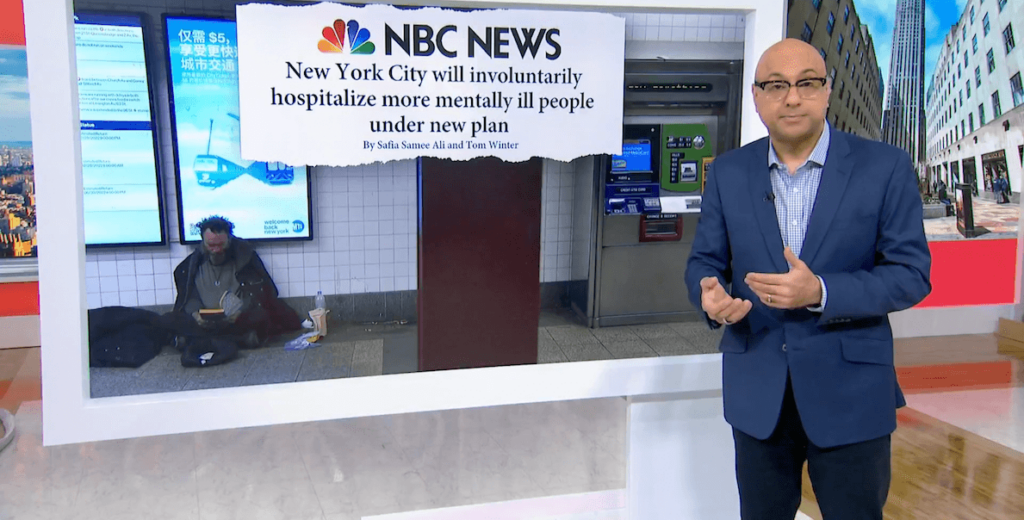“When it comes to treating severely mentally ill patients,” says Ali Velshi on MSNBC, “we as a society have never really gotten it right.” Velshi traces how scientific progress and U.S. government policy have affected people in need of psychiatric care from the second half of the 20th century until today. Last week, New York City Mayor Eric Adams announced a controversial new policy to direct NYCPD to remove citizens who seem to be in danger or posing danger on city streets or on subways — against their will.
It’s somewhat of a full-circle moment for mental health care. Decades ago, Americans with mental illness were removed from society, institutionalized. Later, in an effort to cut healthcare costs and in response to new medications that treated bipolar disorder and schizophrenia, the government closed many psychiatric hospitals. Instead, people with mental illness largely received outpatient care. Says Velshi this “de-institutionalization was essentially one of the largest social experiments in American history — and arguably one of its biggest failures.”
The problem, the MSNBC host and Citizen board member posits, is when any type of treatment or care is done to someone with mental illness, as opposed to for them.
LISTEN TO ALI VELSHI EXPLAIN MENTAL HEALTH POLICY FROM THE 1950s T0 TODAY
WATCH ALI VELSHI PRESENT THE MODERN HISTORY OF MENTAL HEALTH CARE IN THE U.S.
MORE FROM MSNBC’S ALI VELSHI

